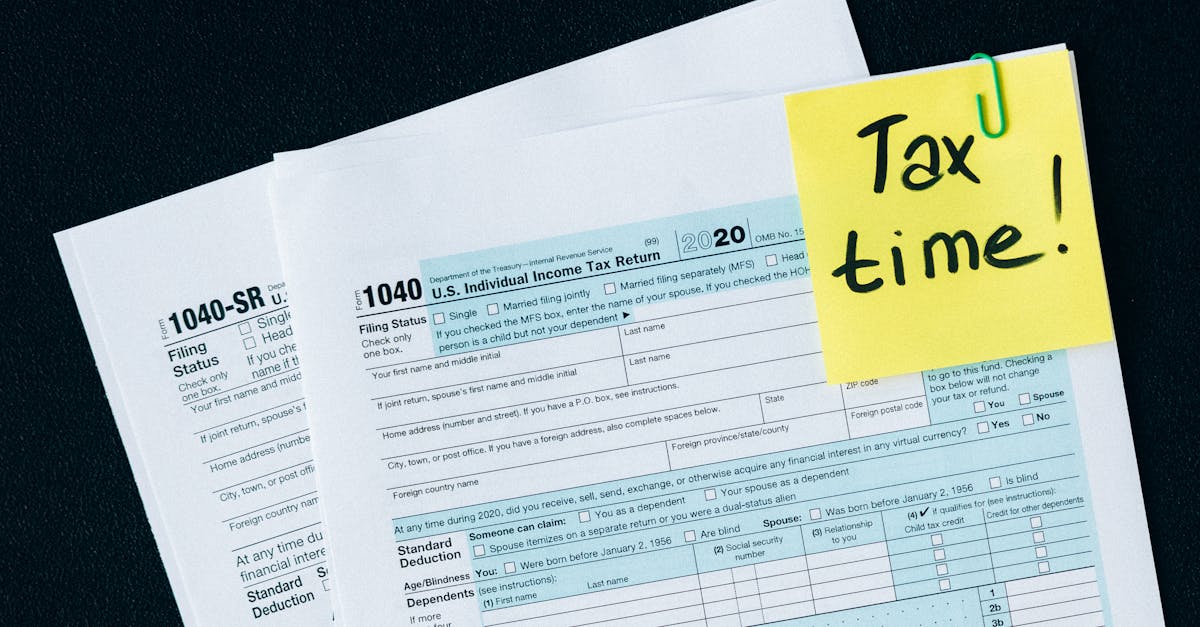Tax reform has been a hot topic in recent years as governments around the world look for ways to stimulate economic growth and increase revenue. In the United States, tax reform proposals have been a major focus of the current administration and the debate over their potential impact on businesses has been intense.
The goal of tax reform is to simplify the tax code, make it fairer and more transparent, and encourage businesses to invest and grow. But with so many different proposals on the table, it can be difficult to understand exactly what changes are being proposed and how they will affect businesses of all sizes. In this blog post, we will provide an overview of the various tax reform proposals and discuss their potential impact on both small businesses and large corporations.
Introduction to Tax Reform Proposals
Before diving into the details, let’s first define what we mean by tax reform. Tax reform refers to any changes made to the tax system in order to improve its efficiency, fairness, and effectiveness. This can include changes to tax rates, deductions and exemptions, and overall tax structure.
In the United States, the current tax system is complex and often criticized for being too burdensome for individuals and businesses alike. The corporate tax rate, in particular, has been a topic of much debate, with some arguing that it is too high and stifles economic growth, while others argue that it allows corporations to avoid paying their fair share of taxes.
With that in mind, let’s take a closer look at some of the key proposed changes to the US tax system and how they may impact businesses.
Overview of Proposed Changes
There have been several tax reform proposals put forward by different groups and politicians in recent years. Some of the most significant ones include:
- President Trump’s Tax Cuts and Jobs Act (TCJA) – This proposal was signed into law in December 2017 and brought about the most significant changes to the US tax system in decades. It lowered the corporate tax rate from 35% to 21%, reduced individual tax rates, and made changes to deductions and exemptions.
- The House GOP’s Tax Reform 2.0 – This proposal was introduced in September 2018 and includes making the individual tax cuts from the TCJA permanent, creating a new 25% tax rate for small businesses, and expanding retirement savings options.
- Senator Bernie Sanders’ Corporate Tax Reform Plan – This proposal aims to reverse some of the changes made by the TCJA and increase taxes on corporations by imposing a 5.4% surtax on companies with over $100 million in annual profits.
- The Biden Administration’s Proposed Changes – President Biden has proposed raising the corporate tax rate back up to 28%, implementing a minimum corporate tax rate of 15%, and increasing taxes on high-income individuals.
Each of these proposals has its own set of supporters and detractors, but what is clear is that they all aim to make significant changes to the current tax system.
Impact on Small Businesses
Small businesses are often cited as the backbone of the American economy, and any changes to the tax system can have a significant impact on their operations. The TCJA, in particular, included several provisions specifically aimed at helping small businesses, such as the introduction of the Qualified Business Income Deduction (QBID).
Under the QBID, small business owners can deduct up to 20% of their qualified business income from their taxable income. This deduction was intended to help small businesses stay competitive and invest in growth. However, there have been concerns raised about the complexity of the QBID and how it may disproportionately benefit certain types of businesses.
The House GOP’s Tax Reform 2.0 proposal includes a provision for a new 25% tax rate for certain pass-through businesses (such as partnerships and S-corporations). This could potentially benefit small business owners who currently pay taxes at the individual tax rate, which can be as high as 37%.
On the other hand, Senator Bernie Sanders’ Corporate Tax Reform Plan would reverse some of the benefits that small businesses received under the TCJA. For example, it would impose a 7% surtax on incomes over $5 million, which could impact small business owners who are considered high earners.
Overall, the impact of these proposed changes on small businesses is still being debated. While some may benefit from lower tax rates or deductions, others may face higher taxes and increased complexity.
Pros
- Lower tax rates for pass-through businesses could result in more disposable income for small business owners to invest in their companies.
- The QBID provides a potential tax break for small business owners.
- Simplification of the tax code could make it easier for small businesses to comply with tax laws and reduce costs associated with tax preparation.
Cons
- Complexity of the QBID may result in confusion and require the assistance of a tax professional, adding to the cost of doing business.
- Higher taxes under Senator Sanders’ proposal could put pressure on small businesses, especially those considered high earners.
- Uncertainty around potential changes makes it difficult for small businesses to plan and make informed decisions about investments and growth.
Impact on Large Corporations
Large corporations have been a major focus of the tax reform debate, with arguments on both sides about whether they are paying their fair share of taxes. The TCJA aimed to lower the corporate tax rate in order to encourage corporations to invest and create jobs, but there has been much debate about whether this has actually happened.
The Biden Administration’s proposed changes would raise the corporate tax rate back up to 28%, which would essentially partially reverse the changes made by the TCJA. Proponents of this plan argue that corporations need to contribute more to society and that the lower corporate tax rate has not resulted in the promised economic growth.
On the other hand, opponents argue that raising the corporate tax rate would discourage investment and job creation, and ultimately harm the economy. The Tax Foundation estimates that the proposed increase in corporate taxes could result in a 0.8% decrease in long-term GDP and a loss of over 159,000 jobs.
Pros
- Higher taxes on corporations could result in increased revenue for the government, which could be used to fund social programs and infrastructure development.
- Increased taxes could help reduce income inequality by making corporations pay their fair share.
- Closing loopholes and implementing a minimum corporate tax rate could prevent large corporations from avoiding paying taxes.
Cons
- Higher taxes could discourage investment and job creation, potentially leading to slower economic growth.
- Raising the corporate tax rate could make US corporations less competitive globally, as other countries have lower rates.
- Large corporations may pass on the cost of higher taxes to consumers in the form of higher prices for goods and services.
Pros and Cons of the Proposed Tax Reforms

As with any major policy change, there are both pros and cons to the proposed tax reforms. Let’s take a look at some of the main arguments for and against these changes.
Pros
- Simplification of the tax code could save individuals and businesses time and money.
- Lower tax rates could incentivize businesses to invest and grow, potentially leading to job creation and economic growth.
- Closing loopholes and increasing taxes on high earners and corporations could result in more revenue for the government, which could be used to fund social programs and infrastructure development.
Cons
- Uncertainty around potential changes makes it difficult for individuals and businesses to plan for the future.
- Higher taxes could discourage investment and job creation, potentially harming the economy.
- Simplification of the tax code could result in some individuals and businesses losing out on deductions and exemptions they previously relied on.
Potential Challenges and Obstacles
While some of the proposed tax reforms may seem straightforward, implementing them can be a complex and challenging process. There are several potential obstacles and challenges that could arise during the implementation of these changes.
One major challenge is political opposition. As we have seen with previous attempts at tax reform, it can be difficult to get all parties to agree on the best course of action. This could result in delays or even prevent some of the proposed changes from being implemented.
Another potential challenge is the complexity of the tax code itself. Even with the goal of simplification, there are many different factors that need to be taken into consideration when making changes to the system. It will require careful planning and collaboration to ensure that these changes are implemented effectively and fairly.
Additionally, there may be unintended consequences of changes made to the tax system. For example, while raising taxes on corporations may seem like a way to generate more revenue, it could actually result in businesses moving their operations overseas or finding ways to avoid paying taxes altogether.
Conclusion and Recommendations

The proposed tax reform changes have the potential to significantly impact businesses of all sizes in the United States. While some may benefit from lower tax rates or new deductions, others may face higher taxes and increased complexity. The ultimate impact will depend on how these changes are implemented and the economic landscape at the time.
As such, it is important for businesses to stay informed about potential changes and plan accordingly. This may involve consulting with a tax professional and carefully evaluating the potential impact of proposed changes on their business operations.
In conclusion, tax reform proposals are complex and have far-reaching effects. It remains to be seen which of these proposed changes will be implemented and how they will impact businesses in the long run. Only time will tell if these reforms will achieve their intended goals of stimulating economic growth and creating a fairer tax system.

